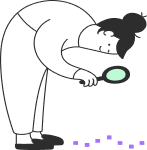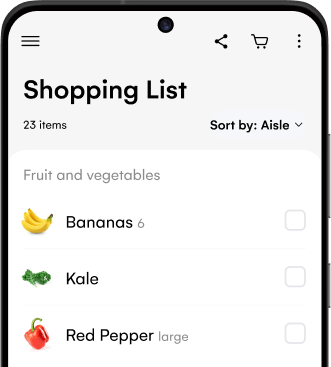Estimated reading time: 6 minutes
Meals are an essential part of any weight loss plan. It’s obvious that if your meals contain more calories than you can burn, the excess will be stored as fat. It’s also common knowledge that when you eat less calories than your body needs, your body will burn its fat stores. This is what creates a calorie deficity and helps you lose weight. So does that mean that if you eat very little, you’ll lose weight faster?
No, it doesn’t. While you will definitely lose weight by starving or eating very little in extreme conditions like being in a desert, prison, or war where food is simply unavailable, it’s much harder to achieve this in the real world.
Plan meals together! Share this plan with your family

Your body interprets a very low calorie diet as famine and adjusts to reduce the way it burns energy and holds on to all fat stores. Moderate calorie deficits along with a balanced approach to weight loss with physical activity, adequate sleep, balanced hormones, stress management and support are more likely to work.
Here’s more about why extremely low calorie diets or starving yourself is unlikely to help you lose weight. Or, how eating too little could actually be stopping you from losing weight. And what you can do instead.

Why eating very low calorie meals doesn’t help you lose weight
The thought of going without food for long periods of time while your body burns its fat stores is quite attractive. Especially if you want to lose weight quickly. But in reality, eating too little doesn’t really help you lose weight.
Why exactly is that? As we mentioned, your body reacts to extreme food restriction by thinking you’re in danger. Here’s what that actually means, and why overly restricting calories can prevent you from losing weight
Your metabolism slows down
Your body will reduce the calories it burns when you don’t eat enough. Research shows that when you eat very little, over time, your body can reduce its energy use by up to 23%.
Low calorie meals or eating extremely reduced calories signals to your body that food is scarce, and it needs to conserve fat stores, not burn them.
Your body responds by holding to fat stores and reducing the way it uses energy.
Also, if you return to your previous eating patterns, your body may never increase the calories it burns. That means you will be likely to gain back all the lost weight and find it even harder to lose.
You struggle to stick to your eating plan
In extreme situations, where there’s no food available, people can go with very little food for a long time. Not that this means they aren’t struggling or suffering. But when food is available, affordable, and abundant, it’s a different story entirely. You may find that you are
- constantly thinking of food
- always hungry
- always tired
- cranky and easily annoyed
In other words, very low calorie diets can make you ‘hangry’—hungry and angry.
And you are unlikely to stick with them. Because your body isn’t designed to operate on such limited fuel. Remember, successful weight management is a lifelong process and approaches that are likely to work are those you can adopt as a permanent lifestyle.
Your risk for micronutrient deficiency increases
When you restrict your diet too rigorously, you are likely to leave out many foods that supply the micronutrients— the vitamins, minerals, and healthful compounds your body needs to function normally. Eating a wide variety of foods helps you to get all the vitamins and minerals you need in your diet.
Without these micronutrients, you are more likely to experience unpleasant symptoms such as headaches, cramps, delayed wound healing, skin issues, frequent infections and anemia (low red blood cells).
You lose muscle mass
Extreme restriction of calories encourages your body to use muscles as an energy source. Muscles use more calories than far while you rest. So your body burns muscle stores to reduce its energy needs.
This can be dangerous because muscles keep you strong, and balanced. They also help to maintain your body’s metabolism rate. Aiming for a healthy muscle mass can improve your wellness journey dramatically.
Losing muscle mass can increase your risk of falls, bone disease, raised blood sugar and limited movement.

Your productivity suffers
When your diet is very low in calories, your body will begin to ration energy. When the energy available is limited, you will have less energy for work, play or athletic activities.
You may find that it’s a struggle to follow your daily routine and engage in physical activity. Or just to get out of bed and go to work or make a cup of tea. Not only is living with this level of fatigue very unpleasant, there are other effects too. Being fatigued and sedentary can also have a negative effect on your mental and physical health.
Dive into our content and find culinary inspiration

Your hormones are all over the place
When your body has too little calories, levels of hormones such as estrogen and testosterone are reduced. This can have far-reaching effects including weakness of bones, menstrual cycle irregularities, low sex drive, and infertility.
Also, the balance between ghrelin and leptin (the hormones that control hunger, feeling full after meals and appetite) is disrupted. Your body begins to create excessive amounts of ghrelin which increases appetite and hunger and lowers your leptin. What does this mean? It’s difficult for you to feel full.
These changes in your hormones can lead to overeating, binge-eating and constant food cravings. Over time, this can sabotage your ability to regulate your appetite and your food choices.

How many calories should you eat to lose weight?
Cutting calories back too far won’t help you lose weight. In fact, it might even be detrimental to your weight loss. And it’s definitely detrimental to your overall health. To lose weight in a safe way, you need to create a moderate and sustainable calorie deficit.
The appropriate amount of calories depends on individual factors. However, experts advise that your daily calories don’t go below 1200 for women or 1500 for men. A calorie deficit of 250 to 500 calories per day is enough to lose 0.5 to 1 pound (0.45 kilogram) each week.
The Academy of Nutrition and Dietetics recommends that adults who want to lose weight consume 1200–1500 calories for women and 1500–1800 calories for men. However, these are merely guidelines, and you should consult a dietician for nutrition advice.
Extreme diets may look promising and could even give quick results, but in the long run they are unlikely to help you achieve your weight loss goals. A more gradual approach embracing your meals, physical activity, sleep and stress management is more likely to succeed.


